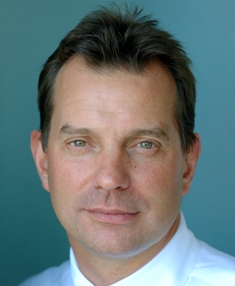Archive for October, 2010
Tropical Storm Richard forms south of Cayman
(CNS):Updated Thursday 10:15am – Tropical Depression 19 strengthens to Tropical Storm Richard, Hazard Management Cayman Islands announced Thursday morning. At 10am the National Hurricane Center in Miami Florida placed TS Richard near 16.2 N 80.4 W, or about 220 miles south-southeast of Grand Cayman, 245 miles south of Cayman Brac. Richard is currently moving towards the southeast near 6 mph with max sustained winds near 40mph. This storm poses no immediate threat to the Cayman Islands; however, rainfall associated with the system will continue to impactthe islands over the next day or two. Swells are expected to affect the south and east coasts of the Cayman Islands.
The CINWS is monitoring the progress of Tropical Storm Richard. All interests within the Cayman Islands should remain alert and stay tuned local media for the latest information on this system.
The next bulletin will be issued 4pm today.
The CI National Weather Service is continuing to monitor the progress and development of TS Richard. For latest local weather forecast go to www.weather.ky

Webster’s offers free ride on Passport2Success
(CNS): The owner and managing director of Webster’s Tours will be helping Passport2Success students on their journey with free rides to college in Newlands. The long time tour operator Kenwrick Webster has proposed a schedule of centralized pick-ups at locations throughout the island, for as many of the 25 Passport students who require early-morning and late-afternoon transport, easing concerns about accessibility and on-time arrivalat International College of the Cayman Islands. Webster says he hopes to encourage young Caymanians to get involved in development of both their own skills and capacitites, and the Cayman community as a whole.
“We believe the Passport progamme offers young people a valuable and important chance to work for everyone’s betterment, and if there is something we can do to assist in that, then we believe it’s the right thing to do. What better cause is there than our young people and our community?” he said.
Webster himself will take care of the West Bay, Prospect and George Town pick-ups, while Omni Bus operator Ruel Miller will provide service from East End, also free of charge.
Ministry officials said they were grateful to Mr Webster for his service and looked forward to the enhanced success of the Passport programme because of his contribution.
“Mr. Webster has generously arranged transport, free of charge, for the participants who need it. It is this kind of gesture that contributes to the overall success of any programme, and is sure to make Passport2Success an ongoing and indispensable part of building our community. I would also like to extend our appreciation to Mr. Miller and Mr. Kelly for joining in this initiative,” said Minister of Education Rolston Anglin. “We are confident that the students will take full advantage of Mr. Webster’s offer, and, for their part, will work hard to meet the buses on time, and treat Mr. Webster, Mr. Miller and Mr. Kelly with the utmost respect.”
Webster’s offer comes on the heels of a similar move in April, when he elected not to collect fees offered by government to bus as many as 22 Passport students in the programme’s inaugural intake.
The Ministry of Education, Training and Employment’s Passport2Success programme, sponsored by Butterfield Bank, CML Offshore Recruitment and local telecommunications provider LIME, offers a selected group of school-leavers and other young people the opportunity to attend a unique instructional programme designed to help them find and retain employment.
The 12-week course, currently in its second session of a proposed four per year, originated in the spring at the International College of the Cayman Islands. The programme operates five days per week between 8:30am and 4:00pm, combining traditional face-to-face classroom encounters with real-time exposure to the professional world-of-work. The curriculum is designed to improve students’ employability, boosting both personal and professional skills, providing practical training in job-specific areas, work experience, exposure to employers and career guidance.
Participants earn a monthly performance-based stipend, which can be increased through attainment of particular goals.

EU deal good news for CI
 (CNS): News from Europe that hedge funds will be regulated via a “passport system” rather than individual registration is good news for the Cayman Islands fund industry, which is back on the up and up. Mark Lewis, managing partner at Walkers, said it was “extremely good news”. He explained that not only was the passport system preferable but he also noted that the new system would be phased in over the next four years, giving Cayman plenty of time to ensure its compliance with whatever the parameters of the system will be. With fund registrations increasing again, the removal of the uncertainty over European hedge fund regulation will be good for the market, Lewis predicted.
(CNS): News from Europe that hedge funds will be regulated via a “passport system” rather than individual registration is good news for the Cayman Islands fund industry, which is back on the up and up. Mark Lewis, managing partner at Walkers, said it was “extremely good news”. He explained that not only was the passport system preferable but he also noted that the new system would be phased in over the next four years, giving Cayman plenty of time to ensure its compliance with whatever the parameters of the system will be. With fund registrations increasing again, the removal of the uncertainty over European hedge fund regulation will be good for the market, Lewis predicted.
He pointed out that the deal that has finally emerged over European hedge fund regulation showed Europe’s ministers had recognised that it was inappropriate to exclude non-Euro based funds, which would have been contrary to the G20 principles of competition. EU finance ministers agreed on Tuesday (19 October) to regulate the sector under the eye of the European Securities and Markets Authority via a passport system. Although the full details have not yet been revealed of how the system will work, Lewis said indications are that this will be beneficial to the local industry, which is enjoying resurgence.
“It really is extremely good news,” Lewis told CNS. “Combined with the recent news that only a few funds have migrated from the jurisdictions and that registrations are growing at some 60 funds a month (100 new against 40 closures) we can be confident now that we are likely to see the high mark of 10,000 registered funds in Cayman passed again early next year.”
The long and protracted argument in Europe about how it would deal with funds registered outside the union had created uncertainty, which Lewis said has now been addressed. “This removes a considerable hurdle and uncertainty for the industry’s immediate future,” the Walkers boss revealed. “We hope it will translate into greater confidence in the market.”
Ingrid Pierce, partner with the global fund group at Walkers, said that the industry would now be watching closely for the details of how the European Securities and Markets Authority would work but she said the industry would welcome organised oversight.
“It is yet unclear how this organization will operate; we have yet to hear the details, but oversight is what the hedge fund industry is used to,” she said, dispelling ideas of the industry being opaque and unregulated. Pierce also said she believed Cayman would be well placed to meet whatever the requirements will be. Importantly, she noted, the phased process would ensure there was plenty of time for the requirements of the regulation under the passport system to be met, allowing Cayman to continue doing business in Europe.
The new oversight for the industry and the regulation of hedge funds in the European Union has been in dispute for several months, with the UK locked in a long-running battle with France over how to regulate the multi-trillion-dollar sector.
Under the new regime, the EMSA will manage a ‘passport’ system for hedge fund managers from outside the EU, giving them access to investors from all 27 member states, so long as they are registered in one country instead of having to register with every country, which is what French officials had hoped for. London, which is, home to 80 percent of the world’s hedge funds, fought against the idea, suggesting that would send funds to other jurisdictions.
Managers will now only have to register in one European country to gain the passport for the rest of the European bloc. The new rules, however, increase the amount of information that funds will need to provide, including which products they are investing in.
Although the French finance minister was not entirely supportive of the deal that was reached on Tuesday, Christine Lagarde said at least it delivered "genuine supervision and regulation of actors who were to-date not at all controlled".
The deal now goes to the European Parliament for approval.

Officials call for dog control after bin man bitten
 (CNS): Government officials from the Department of Environmental Health (DEH) are appealing to owners to keep their dogs confined to secure areas and under control after a garbage collector was bitten last month while collecting bins. The DEH director said the public servant was seriously injured and had to be treated at the hospital and is presently on leave recovering from his injuries. According to the Animal Law (2003) section 40, it is the responsibility of every dog owner to ensure that the animal does not injure anyone. Failure to comply may lead to charges being brought against the owner.
(CNS): Government officials from the Department of Environmental Health (DEH) are appealing to owners to keep their dogs confined to secure areas and under control after a garbage collector was bitten last month while collecting bins. The DEH director said the public servant was seriously injured and had to be treated at the hospital and is presently on leave recovering from his injuries. According to the Animal Law (2003) section 40, it is the responsibility of every dog owner to ensure that the animal does not injure anyone. Failure to comply may lead to charges being brought against the owner.
“At DEH we are most concerned about the situation. Our workers should not have to worry about being attacked by animals during the course of their duties,” Roydell Carter, DEH Director said. “This matter is under investigation, but meanwhile, we are seeking cooperation from the public. If there appears to be a threat, we will leave garbage uncollected.”
For further information, contact DEH at 949-6696.

UK government makes massive spending cuts
 (CNS): Chancellor George Osborne has announced the UK government’s four-year Spending Review to Parliament, revealing some of the deepest cuts in British public spending in decades. According to a BBC report the UK government has cut spending by £81billion. Everything, from spending on the Royal Household to the police budget has been cut, with an average reduction of 19% across the board though some budgets have been slashed by as much as 62%. Almost half a million civil service jobs will be lost and the country’s retirement age is to increase from 65 to 66. The Foreign and Commonwealth Office – which oversees the country’s dependent territories has been cut by almost 25 percent.
(CNS): Chancellor George Osborne has announced the UK government’s four-year Spending Review to Parliament, revealing some of the deepest cuts in British public spending in decades. According to a BBC report the UK government has cut spending by £81billion. Everything, from spending on the Royal Household to the police budget has been cut, with an average reduction of 19% across the board though some budgets have been slashed by as much as 62%. Almost half a million civil service jobs will be lost and the country’s retirement age is to increase from 65 to 66. The Foreign and Commonwealth Office – which oversees the country’s dependent territories has been cut by almost 25 percent.
The Chancellor is also making a levy on bank balance sheets permanent “to extract the maximum sustainable tax revenues from financial services" which, he said, has the potential to raise billions of pounds. Osborne said he wanted banks to make a fair contribution. However, pundits are already suggesting this could drive business to rival financial centres.
The BBC has been told it must take over the cost of the World Service, currently funded by the Foreign Office. According to politicsUK with a quarter of the Foreign office budget shaved it will shift its focus almost entirely to promoting British exports and business abroad.
The Foreign Secretary William Hague’s department will see many of its more traditional diplomatic functions cut back or sidelined. "Non-essential" programmes will be axed and many FCO workers in embassies and high commissions will be made redundant.
IMF tells Caribbean to slow public spending
(CNS): Two years after the onslaught of the global financial crisis real GDP in the Latin America and Caribbean region is set to expand by 5.7 percent in 2010 and 4 percent in 2011 the IMF has revealed. For most Caribbean countries, however, recovery is only beginning and prospects are still limited by high levels of public debt and weak tourism demand according to Western Hemisphere: Heating up in the South, Cooler in the North, an IMF report which was launched in Bogotá yesterday at a seminar hosted by the Central Bank of Colombia. The report recommends that normalization of fiscal policy be the first line of defense with emphasis on slowing the growth in public spending from recent high rates.
The report looks at the record of economic growth in the Caribbean countries and shows how public debt has hampered growth considerably. It argues in favour of a combination of fiscal consolidation to reduce this drag of debt on growth, and for reforms that boost productivity and foster the continued development of the tourism industry.
"The marked heterogeneity across the region means varied challenges for economic policy formulation," Nicolas Eyzaguirre, Director of the IMF’s Western Hemisphere Department, said. "For most of South America, it is all about the risks of too much of a good thing, to avoid possible excesses of demand and finance. In Central America, governments have to continue to be prudent, to rebuild their defenses and continue pursuing reforms to boost competitiveness. Caribbean countries generally have no space for fiscal stimulus due to their high debts and still have to push ahead with fiscal consolidation plans."
One of the most significant findings of the Regional Outlook is how domestic demand has been strengthening in the fastest-growing countries in South America. For such countries, the strength and momentum of domestic demand are likely to dominate their near-term growth prospects, provided advanced economies do not suffer any major setbacks. That is a different reality from the United States, where the recovery so far has been dependent on policy stimulus.
This edition of the Regional Economic Outlook has a special focus on financial sector issues. In particular, the report examines and draws lessons from the recent credit cycle in Latin America—the rapid growth of bank credit that ended abruptly with the global crisis, and which is resuming again in some countries. While the region’s financial systems were generally resilient to the crisis, the goal of avoiding financial crises brought on by excesses remains as challenging as ever.
UK documentary stirs up wrath of Cayman Finance
(CNS): A UK documentary which aired on Monday evening has accused a number of British Cabinet ministers and Conservative party members of avoiding their tax obligations by using offshore tax havens, including the Cayman Islands. The Channel4 Dispatches programme has stirred up the wrath of the Cayman Finance chair and its media representatives in the UK, who accuse the programme makers of “taking their intelligence on the Cayman Islands from pot-boiler novels and Hollywood films” and relying on “hoary old myths”. The programme suggested that the Foreign Office had granted special financial treatment to the Cayman Islands, indirectly benefiting companies run by Conservative Party donors.
In an article taking the programme ‘How the rich beat the taxman’ to task, Jack Irvine, Cayman Finances UK media and political adviser, slams the show for “cliché ridden journalism” and depending on the Tax Justice Network – Cayman Finance’s Nemesis — as its main source of information. In the article the UK Cayman Finance representative criticises the TJN for working out of a “semi detached house”, saying it is not a very powerful.
The programme’s main focus was to question the behaviour of some UK cabinet members in terms of their financial affairs and points to the role the Cayman Islands has played as the domicile of companies run by wealthy Tory donors, such as Hugh Sloane, worth £185 million, and Michael Hintze, worth £250 million.
The documentary also points to a change in the UK’s policy towards Cayman from the previous Labour Foreign Office Minister Chris Bryant. Anthony Barnett (picured above in front of Ugland House), the programme‘s reporter, says that Bryant had tried “to force the islands to introduce direct taxation” by restricting access to loans to plug the budget deficit, but under the new UK government the Foreign Office changed its position and allowed the Cayman government to borrow an extra £150 million with no demands for direct taxes.
With more than 20 millionaires in the UK cabinet, How the Rich Beat the Taxman probes the financial affairs of some ministers and others who have helped the new coalition government. Barnett visited a number of UK offshore tax havens, including the Cayman Islands, and reveals what he says are tax avoidance ploys. All of the cabinet ministers have denied the accusations of avoiding their tax obligations made in the programme, saying they have done nothing illegal and their financial affairs are a matter of public record.
When it comes to Cayman’s role, Irvine accuses the programme makers of misrepresenting the jurisdiction and allowing Richard Murphy of TJN to peddle the common misconception that the Cayman Islands is a tax haven and that there is a “high degree of secrecy”, even though Cayman is an OECD white listedjurisdiction.
Irvine quotes Anthony Travers as he defends the Cayman Islands against the accusations made in the documentary.
“Cayman attracts hedge funds because it has relevant and attractive laws, a high standard of professional service, an effective Court system with ultimate appeal to the Privy Council and full IOSCO transparency. Having sensible judges a UK common law basis to your legal system and regulator to regulator disclosure matters,” the Cayman Finance Chair is quoted as saying in Irvine’s article. “Cayman has been and remains highly attractive as a tax transparent but tax neutral jurisdiction in which relevant structuring can be undertaken to pool funds invested from the international capital markets.”
Irvine also makes personal slights about the sexuality of the former overseas territories minister, Chris Bryant, who appears in the programme. Irvine claims that Bryant has no right to say that what the UK Tories are doing in Cayman and other offshore jurisdictions is “morally indefensible” because he claimed over £92,000 in expenses in the MPs expenses scandal and because he left “his life as a vicar to marry his gay lover,” Irvine stated.
In response to Irvine’s criticisms, Richard Murphy (who calls him "a hired gun") points out that Irvine, and by implication Cayman Finance, have ignored the substantive issues raised by the documentary and instead focused on attacking anyone who opposes the offshore view.

Rushed laws unconstitutional
 (CNS): The government’s frequent suspension of the public consultation period on pieces of legislation before bringing the bills to the Legislative Assembly is unconstitutional, members of the Constitutional Commission said yesterday. One of a number of issues raised in their first report, the commissioners have pointed out that the Standing Orders governing procedures in the Assembly have to be changed to reflect the constitutional requirement that all bills are published 21 days before they are presented there, except in emergency situations. The commissioners warned government that it is vulnerable because of a number of gaps between existing legislation, orders and processes and the requirements of the constitution that it has not yet addressed. (Photo Dennie WarrenJr)
(CNS): The government’s frequent suspension of the public consultation period on pieces of legislation before bringing the bills to the Legislative Assembly is unconstitutional, members of the Constitutional Commission said yesterday. One of a number of issues raised in their first report, the commissioners have pointed out that the Standing Orders governing procedures in the Assembly have to be changed to reflect the constitutional requirement that all bills are published 21 days before they are presented there, except in emergency situations. The commissioners warned government that it is vulnerable because of a number of gaps between existing legislation, orders and processes and the requirements of the constitution that it has not yet addressed. (Photo Dennie WarrenJr)
Legislation has to be compliant before the implementation of the Bill of Rights in November 2012, and government should be in the process of addressing laws and policies in preparation, the commissioners said. But they also noted that a number of issues with regard to the main body of the Constitution have still not been addressed, despite the fact that it was implemented almost a year ago, including the issue of Standing Orders in the Legislative Assembly.
“The commission believes that the government may be vulnerable to unseen liabilities if it does not close the existing gaps by completely and effectively implementing all the sections of the Constitution,” said the commission’s chair, Pastor Al Ebanks, at a briefing on Tuesday morning in which his fellow commissioners, Julene Banks and Wil Pineau, presented the findings of their report to the media. “The commission in the course of its work will do its best to assist and advise where necessary.”
The commissioners pointed to a number of provisions that have not yet been tackled, including the government’s failure to pass legislation relating to the people’s referendum law, the failure of the governor to appoint a director of public prosecutions, and the Cabinet’s failure to update the Guide to Operations of the Cabinet, setting out the constitutional changes affecting procedures as well as the way the premier and minsters are appointed.
The commissioners also pointed out that, while the Electoral Boundary Commission had submitted its report to the governor and the Legislative Assembly several months ago, the government’s position on the report has not yet been presented to the LA.
The current question raised by the premier of whether another cabinet minister can be appointed from the elected representatives before the 2013 election, when the number of seats in the legislature is set to rise, may be delaying that report. Although they have not yet been asked to take a position on this question, Ebanks stated that it was an area the commissioners would be examining. He pointed out that they would be taking legal advice to establish if such a change to the Constitution, if it happens, would require a referendum or not.
Pineau noted that the report, which is a public document and will be available on the constitution website, covers a wide range of issues, including concerns raised by various stakeholder groups during consultation meetings. Furthermore, he said it prioritises the issues which government must address, including, among a number of other pressing issues, the need to rewrite the LA Standing Orders to make them compliant with the Constitution.
Julene Banks pointed out that the Constitution was not something from which people could pick and choose as it suited them, but it was the highest law of the land which sets out the procedures and processes that government must follow. She noted that the 21 day publication requirement was one of many elements that contribute to good governance, openness and transparency that the Constitution is designed to protect. “We need everyone to abide by these laws,” Banks stated. “It’s not a document of convenience; there are standards set by the people, things which the people believe are good and we call on legislators to operate constitutionally.”
Since coming to office the government has voted to suspend Standing Orders on the majority of important laws and amendments that have been passed over the last eighteen months, closing down public debate. Banks stated, however, that the suspension should only occur in the case of emergencies and the people need to ask it this was the case on every occasion. “There should be a mandatory 21 days to allow people time for discussion and debate,” she added.
Section 71 of the Constitution states that Standing Orders must provide for fair procedures, adequate notice of bills and motions, and a sufficient opportunity for members of the Legislative Assembly (including opposition members) to speak and otherwise participate in the proceedings of the Assembly. It also indicated that they shall not be suspended or revoked without good reason. In Section 77 it states that, except in a case of emergency, every bill introduced by the government shall be published at least 21 days before the commencement of the meeting at which it is scheduled to be introduced.

Cops appeal to diners for info on hotel gunman
 (CNS): Police investigating an attempted armed robbery at the Grand Cayman Beach suites on Monday night say that the robber may have lay in wait around the hotel area before his attack. The robbery took place around 11:15pm and Detective Inspector Collins Oremule has issued an appeal to anyone who may have been in the restaurants at the resort to come forward as he says they could have seen the culprit before he made his foiled attempt at the hotel’s finance office. “Webelieve that the gunman had been waiting in the immediate area for a period of time prior to the attack,” the detective said.
(CNS): Police investigating an attempted armed robbery at the Grand Cayman Beach suites on Monday night say that the robber may have lay in wait around the hotel area before his attack. The robbery took place around 11:15pm and Detective Inspector Collins Oremule has issued an appeal to anyone who may have been in the restaurants at the resort to come forward as he says they could have seen the culprit before he made his foiled attempt at the hotel’s finance office. “Webelieve that the gunman had been waiting in the immediate area for a period of time prior to the attack,” the detective said.

Board plans to enforce law over roadside vendors
 (CNS): The Trade and Business Licensing Board is warning illegal vendors it intends to enforce the law regarding licences. In a statement issued by the Department of Investment and Commerce, which now deals with Trade and Business Licensing, the board said that a number of concerns had been raised about an increase in roadside vendors not complying with the law and trading without licenses. As a result from 1 November the board said it is giving all businesses 30 days to become compliant with all the relevant laws that deal with operating a business, including having a valid Trade and Business license. Any business not compliant by 1 December will be penalized the board said.
(CNS): The Trade and Business Licensing Board is warning illegal vendors it intends to enforce the law regarding licences. In a statement issued by the Department of Investment and Commerce, which now deals with Trade and Business Licensing, the board said that a number of concerns had been raised about an increase in roadside vendors not complying with the law and trading without licenses. As a result from 1 November the board said it is giving all businesses 30 days to become compliant with all the relevant laws that deal with operating a business, including having a valid Trade and Business license. Any business not compliant by 1 December will be penalized the board said.